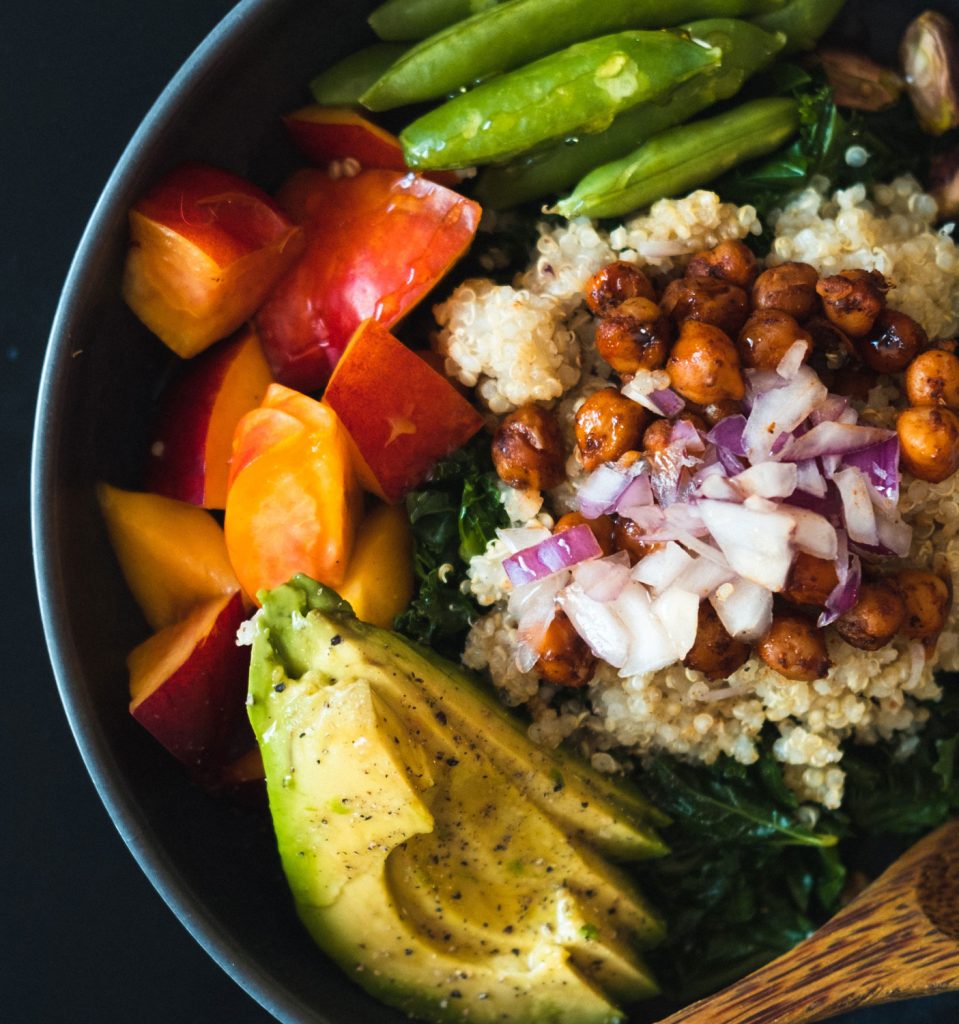When I was a practising chef, I purposely over-delivered and exceeded the expectations of my vegan clientele. I’ve never made nor served a (lazy) veggie skewer. And why would I, when growing up in the Caribbean exposed me to numerous Ital and Indian dishes? To this day, I make a mean curry channa (chickpeas).
I remember having my mettle tested by a client who requested a gluten-free, vegan 10-course tasting menu. It’s been 18 years, and I’m still proud of that menu.
We have a storied history of vegan eating in the Caribbean. Don’t let anyone tell you otherwise. Whether informed by the enslaved or the indentured, our heritage of plant-based eating is incontestable.
On plantations, those who tilled the field had to nourish themselves with scraps and transform hearty greens — like callaloo — into “more-ish”, palatable dishes. When the first Indian indentured labourers arrived in the Caribbean in 1838, they carried with them the deft handling of curries, legumes and vegetables, which made an indelible mark on Caribbean cuisine. Where would we be without buss-up-shut (paratha roti) and dhal?
By the 1930s, Caribbean veganism had a new influence — Rastafari. Sometimes called Rastafarianism, the religion — which now boasts an estimated one million followers — began in Jamaica. Rastafari believe in living a pure and natural lifestyle, consuming only “ital” foods.
Ital foods are natural, whole, unprocessed, and free from salt, additives and chemicals. For so long, Ital cuisine was pigeonholed as comprising merely variations of Ital stew. I remember when, as a teen, my eyes were opened to the breadth of Ital cuisine.
My taste buds were electrified by the flavours of roast yam doused in escoveitch sauce, savoury pumpkin fritters fried in hand-made coconut oil, and delicious orbs (Ital balls) made of millet, sweet potato, and red lentils.
Five years ago, I was (once again) hypnotised by Caribbean vegan food at the award-winning STUSH in the BUSH, located in the hills of St Ann, Jamaica. The dining concept, run by husband and wife team Christopher and Lisa Binns, is a true definition of farm-to-table. The couple also operates Zionites Farm, from which they get the majority of their seasonal menus’ produce.
During my first visit, I marvelled at pumpkin chips with cashew ricotta dip, made in-house; ate an unforgettable carrot gravlax (faux cured salmon) that I’ve dedicated my life to recreating; and had mouthfuls of ripe plantain ceviche — yes raw, ripe plantain. I proclaimed that I would be vegan if I could eat there every day.
“We lean into vegetables in a way that is wonder-filled, flavour-forward, and celebrates both the beauty of the vegetable and how it can stretch its limits to make you think it is something else,” said Lisa.
“We share what is possible if you show your vegetables love and treat them with respect and refinement,” she added. “Because Christopher nurtures the soil, we have the ability to present the variety of Mother Nature on a plate.”
I’ve always been fascinated by vegetable cookery. My dad used to make a boiled breadfruit salad that is, at least to me, better than potato salad. Growing up, plant-based meals didn’t need a name. Sure, we affectionately called it Ital, but it was just how we ate.
During the summer of 1998, my parents consented and installed cable television. Cue: my obsession with the Food Network. During a programme’s episode (the name of which I can’t remember), the host cooked a vegan dish. It was my first time hearing the term “vegan”, and I thought it would introduce me to a whole new world.
But what I saw was quite familiar to me — Ital cooking. I was confused. How could modern veganism — something rooted in African, Indian, Asian, Arab, and Eastern Mediterranean foodways — get anglicised and rebranded? For that, we can thank Donald Watson.
Watson — a British man who wanted to differentiate between vegetarians who ate dairy and those who did not — coined the term “vegan” in 1944. Watson’s movement ignored centuries of vegan and vegetarian diets, woefully erasing them from what would become the prevailing narrative.
The roots of Caribbean veganism are a complex network of elements informed by religion, shared histories, and economics. In turn, the Caribbean’s economy is impacted by environmental challenges (hurricanes, drought, and other myriad effects of climate change).
This too has informed how we thoughtfully choose to cook or purchase plant-based foods boasting local ingredients. This is not only a more sustainable option — but is often more affordable.
“I grew up eating a mostly plant-forward diet — not by choice, but because we were poor and it was cheaper to grow or buy vegetables,” says Guyanese-born Althea Brown. She now resides in Denver, Colorado, and runs the popular Caribbean culinary blog and Instagram account Metemgee. Via email, she shared her experiences with vegan eating growing up in Georgetown.
“Many of the meals I ate as a teen were vegetable stews,” she explained, “like fried balanjay (eggplant) over rice, okra and dhal and rice, or even callaloo cook-up rice.”
Brown’s childhood kitchen was influenced by Ital cuisine, a Hindu grandmother, and worshipping at a Seventh Day Adventist church. The Christian denomination’s dietary rule is determined by the same Levitical law that forbids Jews and Muslims from eating “unclean” fish and meat.
“Straddling these three worlds, I noticed that all three groups believed that this plant-forward way of eating kept their minds, body and spirits pure, and connected them to a higher purpose or being,” said Brown.
The roots of Caribbean veganism are centuries old and — like our people — are dynamic, flavourful, and incandescent. Our many influences are like the rivers that flow to meet our Caribbean Sea.
Here on our islands, Mother Nature basks in the tropical breeze eating curry channa and aloo from a calabash. She places her hand on her heart, digs her toes deep into the warm earth, and smiles proudly. Why? She sees herself wonderfully presented on the plate.

